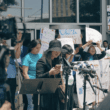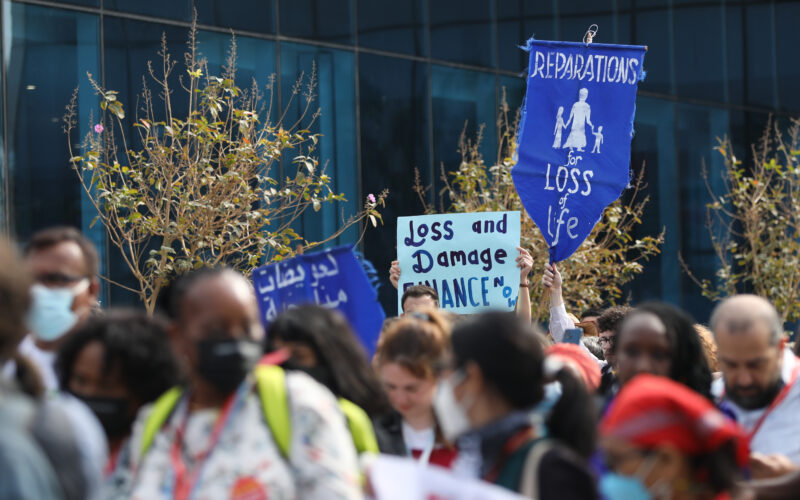Sign up here to receive The Yappie's weekly briefing on Asian American + Pacific Islander politics and support our work by making a donation.
Pacific Islander officials and advocates celebrated this week after countries at the United Nations' COP27 climate summit reached a historic agreement to establish a loss and damage fund as part of an effort to compensate lower-income nations most impacted by climate change.
The landmark deal in Sharm el-Sheikh, Egypt is the result of a Pacific-led fight for accountability and climate finance that began over 30 years ago.
Pacific Islanders—whose homelands have been ravaged by the effects of nuclear waste and rising sea levels for decades—have said for years that they shouldn’t have to bear the brunt of a climate crisis overwhelmingly caused by wealthier countries.
“Now is the time to reverse the generational tide of the extractive economy and to replace it with restorative reinvestment,” the Micronesia Climate Change Alliance wrote in a Facebook post as its team, which included Northern Mariana Islands House Rep. Sheila Babauta (D), set out for Egypt in early November. “We need a #JustTransition that redresses past harms and creates new relationships of power for the future through reparations.”
The agreement is “a clear result from the pressure from the most impacted nations and the civil society,” Joseph Zikulu, the managing director of climate justice nonprofit 350.org Pacific, said in a statement after the deal was announced. “We will have a story to tell. Of our anger and rage at the failure of some countries to step up but also of the new and strengthened connections we have made.”
“From the bottom of my heart, vinaka vakalevu to our tireless Pacific negotiators for securing a loss and damage fund,” tweeted Fiji’s Prime Minister Frank Bainimarama.
Marshall Islands climate envoy Kathy Jetn̄il-Kijiner also called the deal a win for Pacific nations but emphasized that this is just the beginning. “We are also not doing enough to reduce the loss and damage that will affect us in the future,” she said in the summit’s closing plenary. “We must phase out fossil fuels and we must do so now.”
Many leaders echoed her words, pointing out that COP27 ended without a commitment to phase out all fossil fuels. Fossil fuels—coal, oil, and gas—account for over 75% of global greenhouse gas emissions and nearly 90% of all carbon dioxide emissions, according to the United Nations.
Though Simon Kofe, Tuvalu's minister for justice, communications and foreign affairs, said the fund is a “positive step in the right direction for climate justice,” he warned that the world will continue suffering the consequences of global warming as long as countries fail to “name and address the root cause of the climate crisis: fossil fuel.”
With the climate crisis accelerating, Pacific Islanders have pushed for a bigger seat at the table in recent years, especially with U.S. President Joe Biden hosted the first-ever U.S Pacific Islands Summit in September after repeated calls for engagement amid the Chinese government's growing influence in the region.
The Yappie is your must-read briefing on AAPI power, politics, and influence, fiscally sponsored by the Asian American Journalists Association. Make a donation, subscribe, and follow us on Twitter (@theyappie). Send tips and feedback to [email protected].









